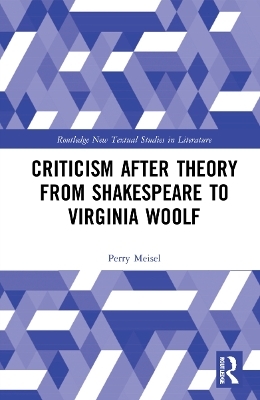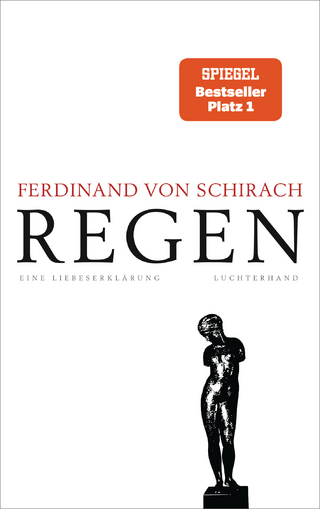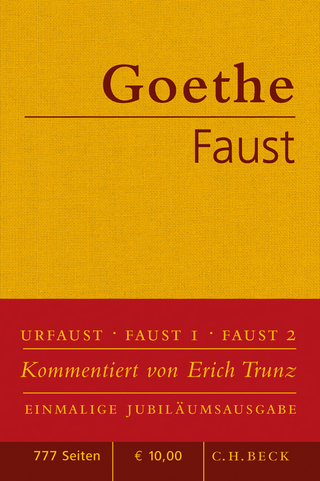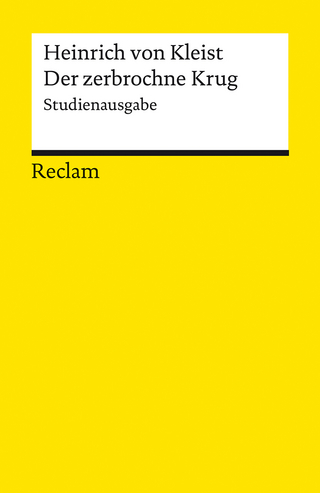
Criticism After Theory from Shakespeare to Virginia Woolf
Routledge (Verlag)
978-1-032-24425-9 (ISBN)
The argument of this book is a simple one: that criticism after theory is a single movement of thought defined by synthesis and continuity rather than by conflict and change. The most influential figures in criticism since Saussure—Bakhtin, Derrida, and Foucault—are wholly consistent with Saussure's foundational Course in General Linguistics (1916) no matter the traditions of complaint that have followed in Saussure's wake from Bakhtin forward. These complaints vitiate—despite themselves and often hilariously so—the misconceptions that have made cottage industries out of quarrels with Saussurean semiology that are based on notions of Saussure that are incorrect. The materialist criticism dominant today is actually dependent upon on the legacy of a presumably formalist structuralism rather than a step beyond it. New Historicism, postcolonialism, gender studies, environmental criticism, archive studies, even shared and surface reading are, like deconstruction, the by-products of Saussure's structuralism, not its foils. Saussure's sign is sensory and concrete. Language and materiality are not distinct but one and the same—history, society, the psychological subject, even the environment are systems of signs, material archives read and reread by futures that produce the past after the fact. Without Saussure, contemporary criticism would have no identifiable or effective source. The book begins with chapters on Saussure and Derrida, Bakhtin and Shakespeare, and Freud and Foucault followed by chapters on Victorian and American fiction, D.H. Lawrence and modern poetry, Virginia Woolf and Melanie Klein, and the historicist tropology of psychoanalysis. It concludes with a coda in life writing on the author's epileptic disability.
Perry Meisel, Professor of English at New York University for over 40 years until his retirement in 2016, has written on literature, music, theory, psychoanalysis, and culture since the 1970s. His articles have appeared in The New York Times Book Review, The Village Voice, Partisan Review, The Nation, The Atlantic, Raritan, October, and many other publications. He is the author of The Myth of Popular Culture (Blackwell, 2010), The Literary Freud (Routledge, 2007), The Cowboy and the Dandy (Oxford, 1999), The Myth of the Modern (Yale, 1987), The Absent Father (Yale, 1980), and Thomas Hardy (Yale, 1972). He is coeditor, with Haun Saussy, of Saussure's Course in General Linguistics (Columbia, 2011), and coeditor, with Walter Kendrick, of Bloomsbury/Freud: The Letters of James and Alix Strachey, 1924–25 (Basic Books, 1985). He is also the editor of Freud: A Collection of Critical Essays (Prentice-Hall, 1981). He received his B.A. Summa cum laude from Yale in 1970. He also received his M.Phil. (1973) and Ph.D. (1975) from Yale. He is the recipient of Yale's Wrexham Prize and Thomas G. Bergin Cup and research grants from the National Endowment for the Humanities and the Spencer Foundation. He is a member of Phi Beta Kappa and PEN and has been a Fellow of the New York Institute for the Humanities and the Institute for the History of Psychiatry at Weill-Cornell Medical College.
Introduction: The Durability of the Linguistic Metaphor, Chapter 1: "The Word Within": Egger, Saussure, Derrida, Chapter 2: Bakhtin, Shakespeare, and the Novel, Chapter 3: Deferred Action from Freud to Foucault, Chapter 4: Form and History from Dickens to Woolf, Chapter 5: Henry James and the Body English, Chapter 6: Sinclair Lewis and the American Language, Chapter 7: Black and Tan: DuBois, Faulkner, and The Joy Luck Club, Chapter 8: D.H. Lawrence: The Poem As Environment, Chapter 9: Mrs. Woolf, Mrs. Klein, Chapter 10: The Feudal Unconscious: Capitalism and the Family Romance, Coda: The Challenge of Temporal Lobe Epilepsy
| Erscheinungsdatum | 03.05.2022 |
|---|---|
| Reihe/Serie | Routledge New Textual Studies in Literature |
| Verlagsort | London |
| Sprache | englisch |
| Maße | 152 x 229 mm |
| Gewicht | 453 g |
| Themenwelt | Literatur ► Lyrik / Dramatik ► Dramatik / Theater |
| Geisteswissenschaften ► Sprach- / Literaturwissenschaft ► Anglistik / Amerikanistik | |
| Geisteswissenschaften ► Sprach- / Literaturwissenschaft ► Literaturwissenschaft | |
| ISBN-10 | 1-032-24425-9 / 1032244259 |
| ISBN-13 | 978-1-032-24425-9 / 9781032244259 |
| Zustand | Neuware |
| Haben Sie eine Frage zum Produkt? |
aus dem Bereich


